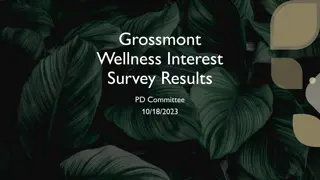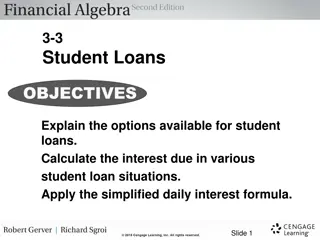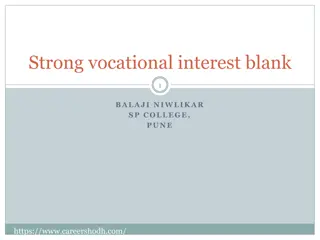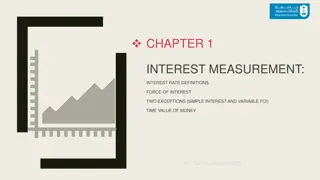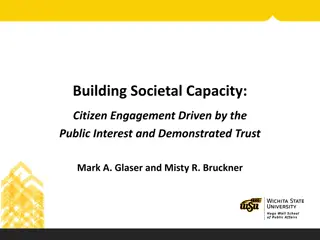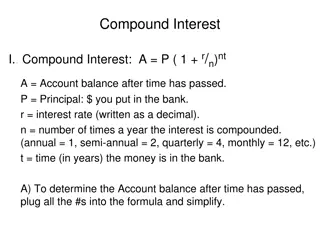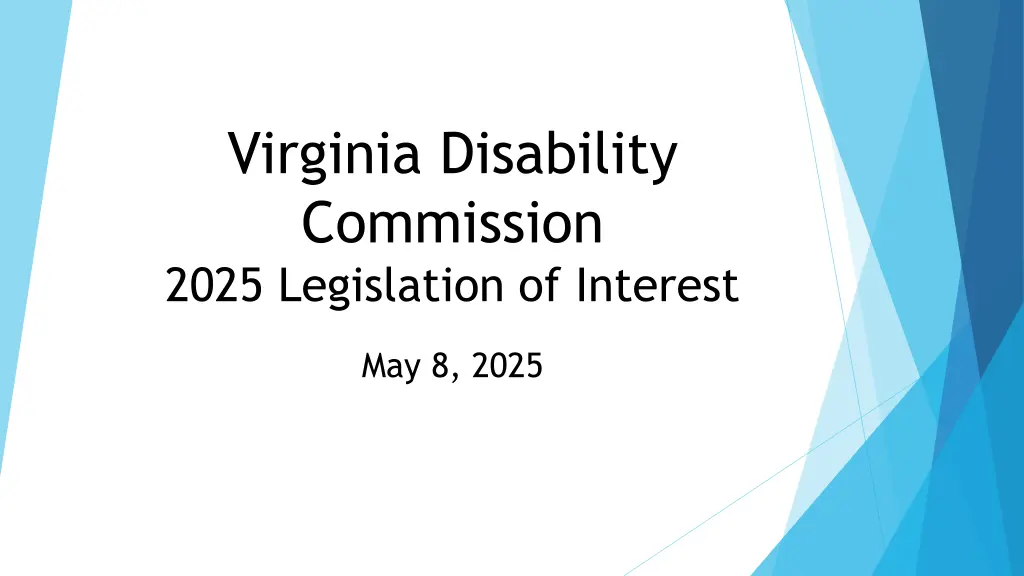
Virginia Disability Commission 2025 Legislation Updates and Education Bills
Stay updated on the latest legislation from the Virginia Disability Commission in 2025, including Medicaid/Waivers, Individualized Education Program (IEP) requirements, and education-related bills focusing on students with disabilities.
Uploaded on | 13 Views
Download Presentation

Please find below an Image/Link to download the presentation.
The content on the website is provided AS IS for your information and personal use only. It may not be sold, licensed, or shared on other websites without obtaining consent from the author. If you encounter any issues during the download, it is possible that the publisher has removed the file from their server.
You are allowed to download the files provided on this website for personal or commercial use, subject to the condition that they are used lawfully. All files are the property of their respective owners.
The content on the website is provided AS IS for your information and personal use only. It may not be sold, licensed, or shared on other websites without obtaining consent from the author.
E N D
Presentation Transcript
Virginia Disability Commission 2025 Legislation of Interest May 8, 2025
Medicaid/Waivers HB 1804 (Cohen) Directs the Department of Medical Assistance Services to amend their application for medical assistance to gather all necessary information to determine an applicant's eligibility for the Medicaid Works program.
Education--Individualized Education Program (IEP) HB 1805 (Cohen) Requires any individualized education program (IEP) meeting held for the purpose of postsecondary transition planning to include information relating to the student's needs that may be necessary or relevant to facilitating the student s transition from secondary school to an institution of higher education. HB 1806 (Cohen) Allows each IEP implemented for a public school student with a disability to contain language addressing individualized accommodations and supports for the student during emergency situations and evacuations.
Education--Individualized Education Program (IEP) HB 1892 (Seibold) Requires that IEP teams provide parents with written notice of their student's rights and obligations relating to dual enrollment courses during the annual IEP planning process prior to any year in which a child with a disability is entering 11th or 12th grade. HB 2219 (Tran) and SB 1034 (Pekarsky) Requires each school division to document in the IEP of a student with a disability who uses augmentative and alternative communication (AAC) the student's support needs prior to instructing or supporting the student. The bill also requires each school division to provide employees who provide instruction or direct support to a student with a disability who needs or uses an AAC with training to support the student's use of AAC.
Education HB 1880 (Sewell) Provides that whenever a child of a service member who enrolls in a school division is also a child with disabilities, the school board is required to coordinate with the child's parent and previous school division to provide comparable special education services and accommodations for the child. HB 1970 (Watts) and SB 1202 (Deeds) Clarifies that institutions licensed by the Department of Education that provide services pursuant to the federal Individuals with Disabilities Education Act or any school that is licensed by the Board of Education as a school for students with disabilities are institutions of learning not conducted for profit whose property is exempt from taxation pursuant to the Constitution of Virginia.
Education HB 2278 (Price) Requires each school board or division superintendent to review the extent to which (i) school buildings and grounds present physical accessibility challenges and barriers for individuals with disabilities; (ii) challenges in access to programming and supports exist for individuals with disabilities at schools; (iii) such schools have begun or plan to address and eliminate the challenges and barriers; and (iv) state agencies can assist such schools to address and eliminate the challenges and barriers. HB 2606 (Ware) Allows (i) a special education due process hearing officer, upon determination that a due process hearing complaint contains substantively the same issues as a previously adjudicated due process hearing complaint and evidences a clear pattern of initiating vexatious and repetitive litigation, to dismiss the complaint and (ii) any party aggrieved by such a dismissal to bring a civil action pursuant to applicable law.
Transportation HB 2116 (Keys-Gamarra) Adds non-apparent disabilities to the list of conditions that the Department of Motor Vehicles, when requested by an applicant and upon presentation of a signed statement by a licensed physician confirming the applicant's condition, is required to indicate on an applicant's driver's license/identification card. HB 2501 (Rasoul) Requires the Department of Motor Vehicles to create a program to distribute envelopes for drivers diagnosed with autism spectrum disorder to provide to a law-enforcement officer for the purpose of easing communication during a traffic stop/accident.
Miscellaneous HB 1800 (Cohen) Clarifies that persons with disabilities have the same rights as other persons to the full and free use of public playgrounds. HB 2120 (Maldonado) Establishes a procedure for seizure of property used in connection with or derived from financial exploitation of vulnerable adults. The bill permits a guardian, adult proactive agent, or representative of the vulnerable adult to enforce such an action for good cause shown.
Miscellaneous HB 2541 (Tran) Makes numerous organizational changes to the Information Technology Access Act, including (i) defining "information and communications technology" as it relates to digital accessibility for all persons with disabilities and (ii) permitting each covered entity to designate an employee to serve as such covered entity's digital accessibility coordinator, who is responsible for developing and implementing such covered entity's digital accessibility policy. SB 1038 (Pekarsky) Directs the Department of Behavioral Health and Developmental Services to develop and disseminate best practice educational training for health care providers on how to conduct telehealth visits for patients with disabilities


